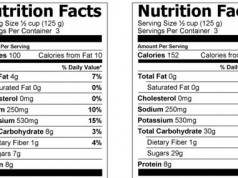Dear Pharmacist,
My question is about the FDA and freedom of speech. The reason I ask is that I am reading your Drug Muggers book, and you make a lot of nutrient recommendations. When I called a big online store to ask a question about a supplement they sell, they wouldn’t answer me because they said the FDA had threatened them with fines or jail. I find this very frightening. Further, I read that the Diamond Nut Co. was threatened by the FDA because they advertised that their walnuts were good for your heart, since they contain omega 3’s. Is it legal for you to recommend Coenzyme Q 10 for the drug mugging effect of statins, and just how protected is your freedom of speech? –E.F. Boulder, Colorado
Answer: Dietary supplement companies cannot recommend that you buy their Coenzyme Q10 to take with statins, but I can. The FDA regulates the labeling of drugs and dietary supplements, as well as all marketing and advertising literature associated with the sale of these items. But I’m not a drug or dietary supplement manufacturer, nor do I sell these products. Therefore, what I say about drugs and dietary supplements is not labeling, nor is it literature. Even though what I write is an opinion column, I tiptoe by following specific advertising standards set forth by the Federal Trade Commission (FTC) who require labeling to be “truthful and non-misleading.”
The law that governs dietary supplements says you can’t make a claim (on your label or literature) that dietary supplements can diagnose, treat, cure, or prevent a disease. What I say is neither labeling or literature, it is a truthful and non-misleading statement based on my study and research. I believe that statin users should probably supplement with CoQ10 to counteract the drug-mugging effect which is well-documented in clinical studies.
A food company, like Diamond Nut Company, can only make a health claim about their product in relation to a disease state, if the FDA has previously approved that claim. The FDA did approve a claim in 2004 for walnut manufacturers who are allowed to say, “Supportive but not conclusive research shows that eating 1.5 ounces per day of walnuts, as part of a low saturated fat and low cholesterol diet and not resulting in increased caloric intake, may reduce the risk of coronary heart disease.” The claim can’t sway an eensy bit from what the FDA approves, so maybe Diamond Nut Company said it the wrong way. Regardless, walnuts are a rich source of omega 3s! I always include language (what my attorney calls a disclaimer) to make sure people know that my advice is my opinion. It’s what I truly believe based on clinical studies, personal research and 22 years as a pharmacist. In a nutshell, what I say is not medical advice -that’s something you should always get from your personal health care practitioner.
Did You Know?
Niacin is known for it’s ability to improve cholesterol ratios.
Got a question? Visit http://www.dearpharmacist.com to get it answered.













